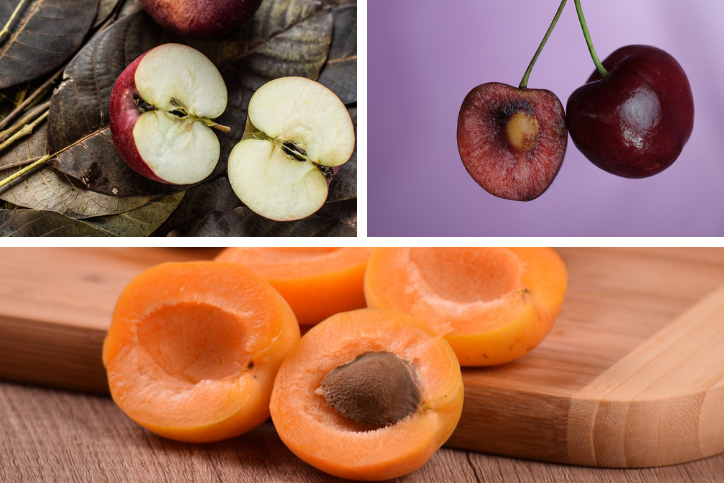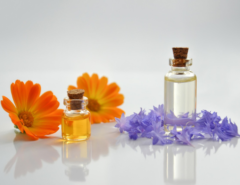With the spring and summer season, you may find yourself reaching for a refreshing fruit as a snack. Some fruits contain pits and/or seeds that can be harmful. Let’s look at some common fruit pits and seeds we hear about at the Poison Center.
Stone Fruits and Cyanide Toxicity
Swallowing the whole seed, pit, or kernel of the following fruits will not cause harm, but chewing or crushing them may. When chewed or crushed, digestive enzymes react with the chemical amygdalin that’s inside the pit or seed and causes the formation of cyanide.
Symptoms of cyanide toxicity include:
- Headache
- Nausea
- Seizures
- Convulsions (sudden irregular movements)
- Difficulty breathing
Cherry Pits
Cherries have a small pit that surrounds seeds. Before eating a cherry, take care to remove the pit. Accidentally swallowing one or two pits will not cause harm, but they are a choking hazard! Chewing and swallowing more than two pits of some varieties of cherries may cause cyanide toxicity.
Apple Seeds
Apples contain small black seeds. Swallowing small amounts of the seeds does not contain enough cyanide to cause harm. Chewing and swallowing the seeds in large amounts, such as hundreds, may cause cyanide toxicity.
Apricot Kernels
Apricot pits contain a kernel inside. These kernels look like almonds and can be bought in bags. Pay very close attention to the directions to learn how many can be eaten without causing harm. There is not an agreed upon amount of kernels that are safe to consume. It appears that quantities of 10 or less are safe for some kernels. This is why it is very important to follow the directions on purchased products. Chewing and swallowing more than 10 kernels may cause cyanide toxicity. Grinding up and adding more than 10 apricot kernels to smoothies and other foods is not advised.
Other Stone Fruits
Other amygdalin-containing stone fruits to avoid the pits of include plums, peaches, mangoes, and nectarines.
Cross-Reacting Allergens in Fruits
Speaking of fruits, we also wanted to share information on cross-reacting allergens that happen when some people eat fruits. Poison Specialists can manage allergic reaction cases. Cross-reacting allergens happen when you eat a fruit that has proteins similar to a pollen that you are allergic to, and eating the fruit causes an allergic reaction. The technical term for this is Pollen Food Allergy Syndrome (PFAS). Typically, PFAS is seen in older children, teens, and young adults. Here are a few types of pollen and the fruits that can cause a cross-reaction:
- Birch pollen: kiwi, apple, pear, plum, peach, nectarine, apricot, cherry, banana, strawberry, mango
- Alder pollen: apple, cherry, peach, pear, strawberry, raspberry
- Grass pollen: orange, kiwi, watermelon
- Mugwort pollen: mango
- Ragweed pollen: banana, watermelon, melons
Symptoms of an allergic reaction from a PFAS include:
- itchy mouth
- scratchy throat
- swelling of the lips, mouth, tongue, or throat
There are also fruits whose proteins react similarly, sometimes causing an allergic reaction. For example, there are known cross reactions between strawberries and mangoes, pineapple and strawberries, and pineapple and papaya.
If you, or someone you know, has eaten a fruit pit or seed, call the Poison Specialists at 1-800-222-1222 for advice. If you are having an allergic reaction, whether it be from a cross-reacting allergen or not, you can call the Poison Specialists about that too. They are available 24/7 and calling is free and confidential.





Leave a Reply